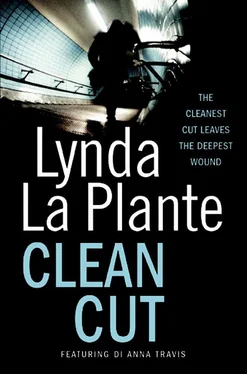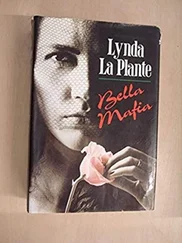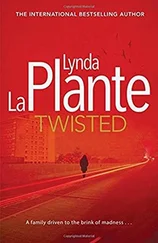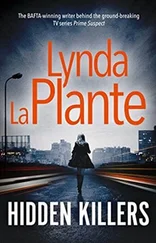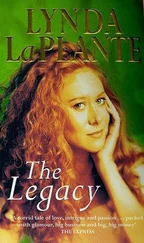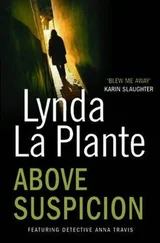My gratitude to all those who gave their valuable time to help me with research on Clean Cut, in particular Lucy & Raff D’Orsi, Professor Ian Hill (pathology), Dr Liz Wilson (forensics), and Callum Sutherland for all their valuable police advice.
Thank you to my committed team at La Plante Productions; Liz Thorburn, Richard Dobbs, Pamela Wilson and Noel Farragher. For taking the weight off my shoulders to enable me to have the time to write and for running the La Plante Productions company. Thanks also go to Stephen Ross and Andrew Bennet-Smith and especially to Kara Manley.
To my literary agent Gill Coleridge and all at Rogers, Coleridge and White, I give great thanks. I give special thanks for their constant encouragement. To my publishers Ian Chapman, Suzanne Baboneau and to everyone at Simon & Schuster, especially Nigel Stoneman. I am very happy to be working with such a terrific company.
Anna was in a foul mood. He had not turned up for dinner. Work commitments sometimes took precedence, obviously — she knew that — but he only had to call and she would understand. In actual fact, she had put understanding of their profession right at the top of the pluses on her list. It was a Friday and she had a long weekend due; they had planned to drive out to the country and stay overnight at a lovely inn. It was unusual for them both to have time off, so it made it even more annoying that he had not phoned. She had left messages on his mobile but did not like to overkill, as it was possible he was on a call out; however, she knew that he was meant to be winding down the long and tedious enquiry he had been on for months.
Anna scraped the dried food off the plate into the bin. Tonight had not been the first time by any means and as she sat, tapping her teeth with a pencil, she tried to calculate just how often he had missed dinner. Sometimes he had not even turned up at all, but had gone to stay at his own flat. Although they did, to all intents and purposes, live together, he still kept his place in Kilburn; when he was on a particularly pressing case and working round the clock, he used it rather than disturb her. It was not a bone of contention; sometimes she had even been relieved, although she never admitted it. He also liked to spend quality time there with Kitty, his stepdaughter from his second marriage. All this she could take in her stride, especially if she was also up against it on a case of her own.
They did not work together; they had not, since they became an item. This was partly due to the Met’s once unspoken rule that officers were not to fraternize, especially if assigned to the same case. It had bothered Langton more than Anna, but she had understood his reservations and was quietly relieved that, since the Red Dahlia case, they had been allocated to different enquiries. They had a tacit agreement not to bring work home to each other; she adhered to it, but Langton was often in such a fury that he started swearing and cursing as soon as the front door opened. She had never brought this up, but it had become very one-sided. As he ranted and railed about his team, about the press, about the CPS — about anything that had got under his skin that day — he rarely, if ever, asked what her day had been like. This went onto the list of minuses.
Anna went to stack the dishwasher; God forbid he ever considered moving his cereal bowl from the sink to the dishwasher. He was often in such a rush to get out in the morning that she would find coffee cups in the bedroom, the bathroom, as well as something she had grown to really detest: cigarette butts. If there wasn’t an ashtray within arm’s reach, he would stub his cigarettes out in his saucer or even in his cereal bowl; to her knowledge, he had never, since they had been together, ever emptied an ashtray. He had never taken the rubbish out to the bins either, or washed a milk bottle and put it out; in fact, he almost used her Maida Vale flat like a hotel. She was the one who sent the linen to the laundry, collected it and made up the beds with fresh sheets; then there was the washing and the ironing. He would leave their bedroom like a war zone: socks, underpants, shirts and pyjama bottoms strewn around the room, dropped where he had stepped out of them. There was also the slew of wet towels left on the floor in the bathroom after his morning shower, not to mention the toothpaste without its cap. She had brought up a few of these things and he apologized, promising he would mend his ways, but nothing had changed.
Anna poured herself a glass of wine. The list of minuses was now two sheets long; the pluses just a couple of lines. Now she got onto bills. He would, when she asked, open his wallet and pass over a couple of hundred pounds, but then often borrowed it back before the end of the week! It wasn’t, she concluded, that he was tight-fisted; far from it. It was just that he never thought. This she knew: often he was complaining about his flat being cut off because he’d forgotten to pay his own bills. When he was at home, he ate like a starving man, but had never once accompanied her to do a grocery shop. The plus, if you could call it a plus, was that he did say anything she placed in front of him was good, when she knew her culinary expertise left a lot to be desired. He also downed wine at a rate of knots, and never went to bed without a whisky; this particular minus was underlined. Langton’s drinking had always worried her. He had, on various occasions, gone on one of his drying-out periods; they usually lasted a week or so and were often done to prove that he was not, as she had implied, bordering on alcoholism. He could get into quite an angry mood if she brought it up, insisting he needed to wind down. She kept on writing, however; the drinking at home was one thing, but she knew he also hit the pub with his cohorts on a regular basis.
Anna emptied her wine glass and poured another; she was getting quite piddled herself, but was determined that when he did come home, it was time for a long talk about their relationship. She knew it was unsatisfactory: very obviously so, when she read through her list. What invariably happened when she had previously attempted to try to make him understand how she felt, was that the plus side of their life together made it never the right moment. He would draw her into his arms at night, so they lay wrapped around each other. She adored the way he would hold her in the curve of his body and nuzzle her neck. His hair was usually wet from the shower and he smelled of her shampoo and soap; many nights, he would shave before coming to bed, as his dark shadow was rough to her skin. His lovemaking left her breathless and adoring; he could be so gentle and yet passionate, and was caring and sensitive to her every whim — in bed…
Langton’s presence filled her small flat from the moment he walked in the front door until the moment he left, and without him there was such an awful quiet emptiness. Sometimes she enjoyed it, but never for long; she missed him, and loved to hear him running up her front steps. She was always waiting as he let himself in, opened his arms and swung her round as if he’d been away weeks instead of a day. He then dropped his coat and briefcase, kicked off his shoes, and left a trail of discarded garments all over the place as he went into the bedroom to shower. He always showered before they had dinner; he hated the stink of cells, incident rooms and the stale cigarettes that clung to his clothes. After his shower, he would put on an old navy-blue and white dotted dressing-gown and, barefoot, go into the lounge to put the television on. He never settled down to watch any single programme, but would switch between news items and the various soaps that he hated with a vengeance. As she cooked, he would yell from the lounge what a load of crap was on TV, then join her to open the wine. Perched on a stool, he would talk about his day: the good, the bad and, sometimes, the hideous. He always had such energy and, in truth, when he did discuss his cases, she was always interested.
Читать дальше
